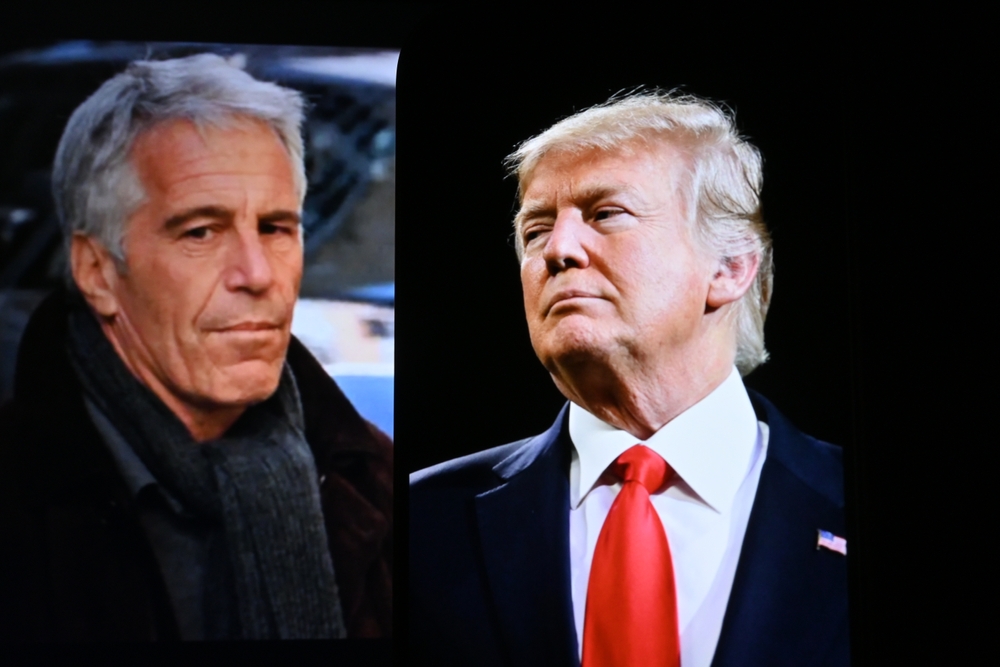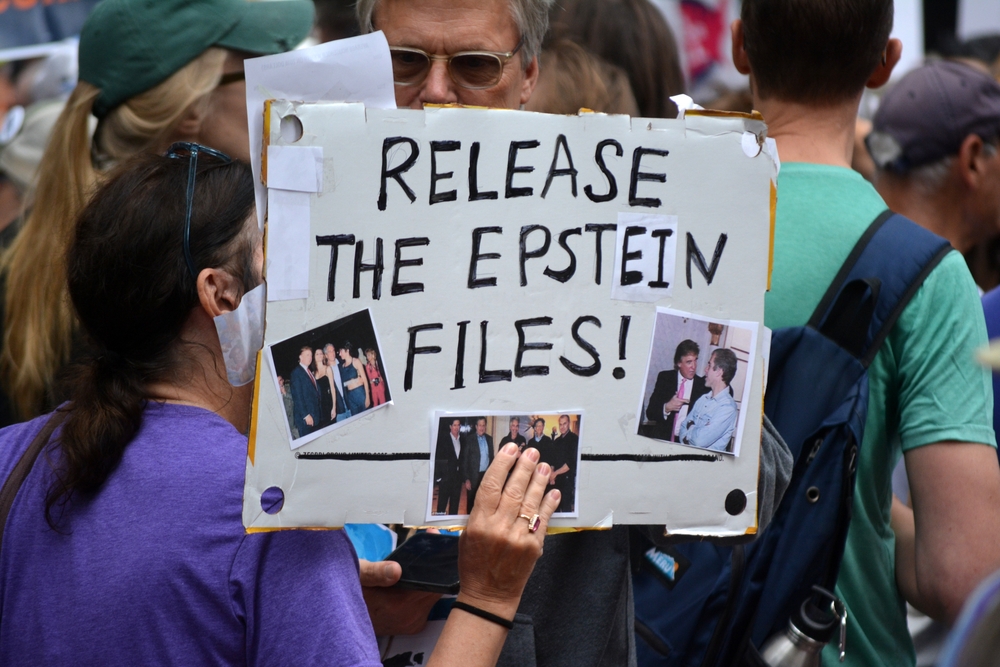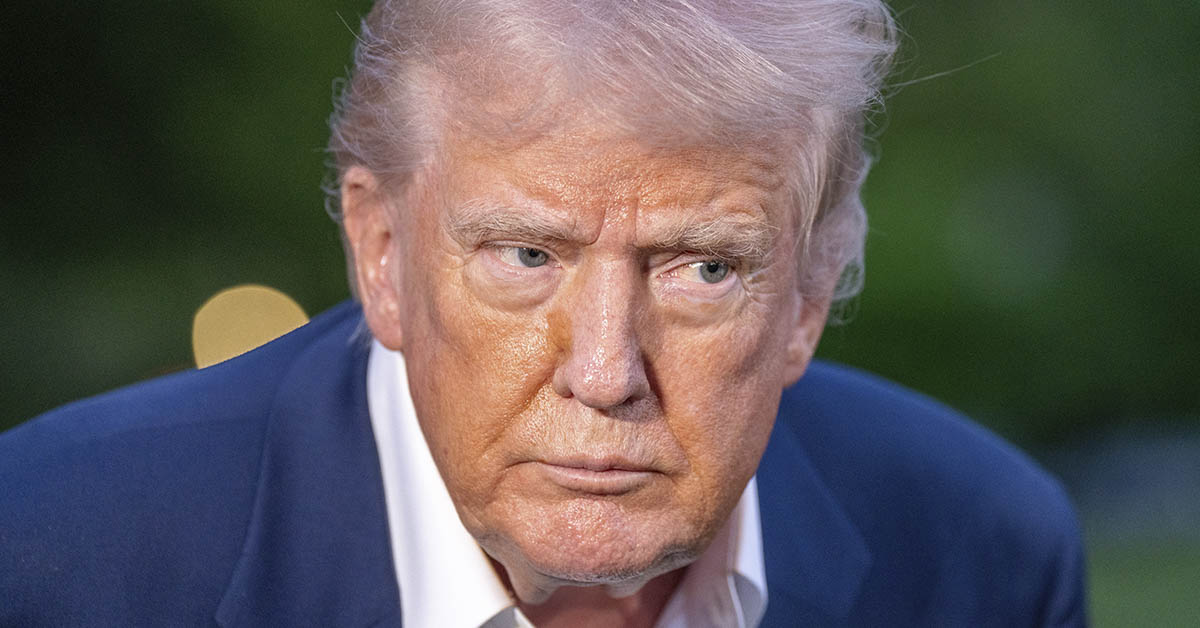The political scene was buzzing when House Speaker Mike Johnson suggested Donald Trump had once acted as a Trump FBI informant during the Jeffrey Epstein case. His remark quickly got picked up, made the rounds online, and caused a storm of questions.
Within hours, Johnson backtracked, saying he had messed up his wording and had only repeated something from a victim’s attorney. He explained Trump wasn’t an informant at all, but that he had simply given some information years ago.
This short but chaotic moment showed how a single word can spin into headlines, comedy sketches, and heated arguments. It also reminded everyone how touchy the Epstein case still is, with survivors, lawmakers, and the public all demanding the full truth.
The Claim and the Retraction
Johnson first tossed out the claim while talking about Epstein-related records. He said Trump worked with the FBI as an informant, which gave the sense that Trump was secretly helping investigators. Considering Trump has often blasted the FBI in the past, the suggestion felt almost unbelievable.

The reaction was harsh and fast. Reporters asked questions, critics jumped in, and within hours Johnson corrected himself. He explained he was echoing Brad Edwards, a lawyer for Epstein’s survivors, who once said Trump offered useful information in legal cases. Johnson admitted he probably used the wrong word, that “informant” wasn’t right, and that Trump didn’t wear wires or do undercover work.
The correction helped, but not enough. Once words hit the internet, they rarely vanish. Headlines calling Trump an FBI informant were already out there.
Edwards’ Words and Trump’s Role
Brad Edwards, the lawyer at the center of this mess, never claimed Trump was an FBI insider. What he actually said years ago was that Trump stood out for being willing to help when other wealthy men stayed silent.
Around 2009, Trump provided some helpful details in civil suits tied to Epstein. Edwards’ point was that Trump’s assistance in the Epstein case was unique because the most powerful names wanted nothing to do with it. Johnson’s retelling, though, twisted this into something more sensational. One word changed the entire story.
Public Reaction and Media Spin
The story went viral. Jimmy Kimmel cracked jokes about Trump being the least likely FBI informant. Martina Navratilova mocked it on social media. Commentators on both sides warned that loose talk only added to the noise surrounding Epstein. Big outlets like The Guardian clarified the mix-up, pointing out the difference between casual cooperation and being an FBI informant. Yet corrections never travel as far as first headlines. For many readers, Trump was now labeled an informant, even if that wasn’t true.
Epstein Files and Political Pressure
All of this landed while Congress debated the release of more Epstein-related material. The Oversight Committee recently got a so-called “birthday book” from Epstein’s estate that included notes and correspondence with famous figures, Trump among them.
At the same time, lawmakers pushed the Epstein Files Transparency Act, a bill that would force wide public release of Epstein’s records. Supporters argue the public deserves to know, while critics fear privacy violations or impacts on ongoing cases.
Survivors met privately with lawmakers and pushed for more openness, identifying new people of interest and reminding everyone what was at stake. Johnson’s slip didn’t help. It pulled focus away from survivors’ voices and fed into the political circus instead of keeping attention on accountability.
Trump and Epstein’s History
Trump’s past with Epstein is complicated. The two were once seen at the same social events in the 1990s and 2000s, but Trump eventually banned Epstein from Mar-a-Lago for inappropriate behavior. Later, Trump distanced himself publicly, saying they were never close.

Edwards’ account of Trump offering some help matches that distancing, but Johnson’s rewording painted a different picture. Saying Trump acted as an FBI informant created drama, when in reality he only offered limited cooperation to attorneys.
Why Words Matter and Lessons Learned
Politics is built on words, and in this case, one wrong choice, “informant,” was enough to spark a wave of confusion. That word doesn’t mean “helpful witness.” It suggests undercover work and formal ties to the FBI.
In today’s world, such slips spread fast, while corrections drag behind. This is why leaders must speak carefully, especially about sensitive scandals. At the same time, the public also has a role. Not every bold headline should be taken at face value. The real focus should always be on the survivors. Their demand for full truth and justice is what matters most, not whether one politician stumbled over his phrasing.

Final Thoughts
Mike Johnson’s mistaken claim that Trump acted as an FBI informant against Epstein lasted only a few hours, but it was long enough to make waves. He later clarified that Trump had never been an informant, that he only offered limited cooperation years ago. Still, the damage was done.
Survivors keep fighting for answers, Congress is debating which files to release, and the public is left sorting out fact from rumor. Johnson’s slip is a reminder that words carry weight and justice for Epstein’s victims must stay at the center of this story.
Read More: FBI Deputy Director Offers New Perspective on Epstein’s Death

